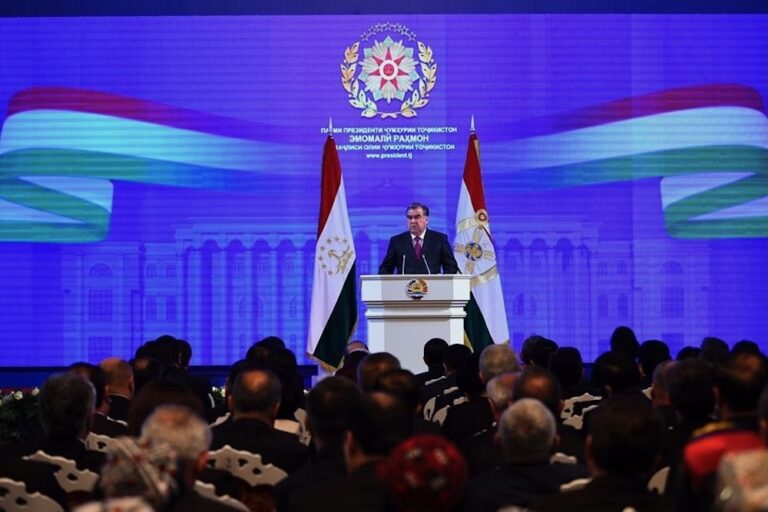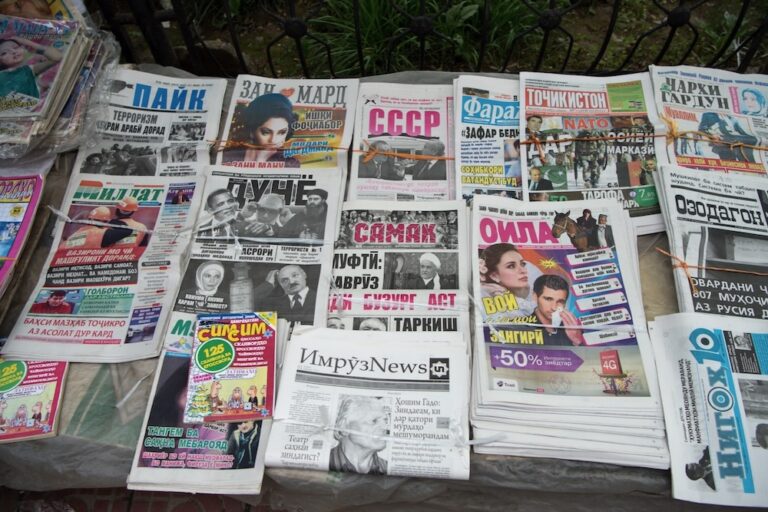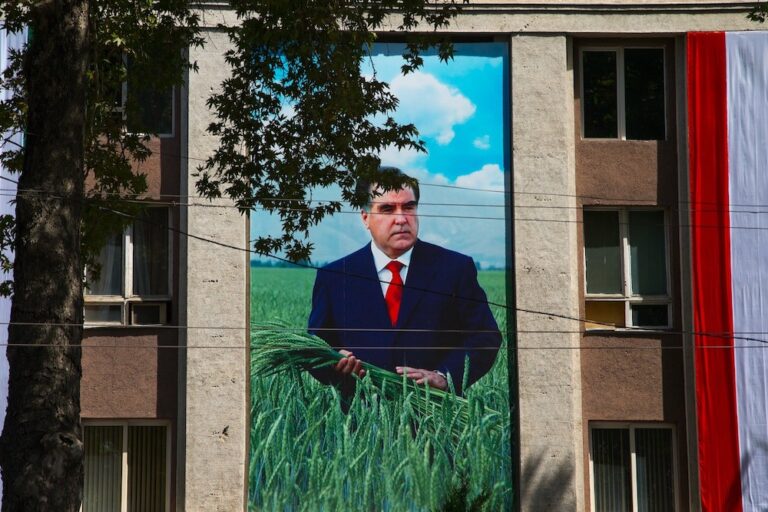(Adil Soz/IFEX) – The following is a capsule report by the National Association of Independent Mass Media of Tajikistan (NANSMIT), an Adil Soz partner: In the run-up to parliamentary elections, the state of press freedom in Tajikistan has worsened. NANSMIT’s monitoring service has documented 337 violations of journalists’ and media outlet’s freedom of expression. The […]
(Adil Soz/IFEX) – The following is a capsule report by the National Association of Independent Mass Media of Tajikistan (NANSMIT), an Adil Soz partner:
In the run-up to parliamentary elections, the state of press freedom in Tajikistan has worsened. NANSMIT’s monitoring service has documented 337 violations of journalists’ and media outlet’s freedom of expression. The most significant problems included denial of access or restricted access to information of public interest as well as obstacles to distributing such information. In 2004, 123 violations of this kind were registered.
Authorities use various means to prevent journalists from accessing information of public interest, despite the fact that the Constitution and other laws guarantee the right to receive and distribute such information. Methods include the denial of accreditation to certain journalists or preferential status given to state-controlled media outlets with respect to access to information. These actions are generally undertaken on the orders of senior officials.
In one such case, Hikmatullo Bahodurov, an editor for “Pravo i obshestvo” newspaper, requested information from the Isfar City Land Committee on the procedure for allocating agricultural land. Committee officials demanded, however, that the editor get permission from both the Sogdyi region Land Use Committee and the Isfar city mayor before they could provide the information.
Media distribution has also suffered in the run up to the parliamentary elections. In one case, the 4 November 2004 edition of the Bishkek-based newspaper “Ruzi nav” was seized by tax police at Dushanbe airport. Authorities have not yet given any explanation for the incident. In another example, on 6 September, Tolibsho Saidov, founder of the new socio-political independent newspaper “Bomdod”, based in Halton region, said that all publishing houses in Dushanbe, including the Sharki Ozod publishing company, refused to publish his paper for various reasons. The only exception was the Sanadvora printing house in Dushanbe, which currently publishes the paper.
Journalists have also been subjected to restrictions at court proceedings. On 30 December, Judge Faizali Nozilov, presiding over the trial of the weekly “Neriu Suhan” at the Firdavsi District Court in Dushanbe, barred journalist Valentina Kasymbekova from attending the trial. Kasymbekova then tried to get permission, but her request was rejected.
NANSMIT expresses its concern over these violations of Tajikistan’s Constitution and its Law on the Press and other Media and calls on authorities to observe the above laws and to take appropriate measures to improve the freedom of expression situation.


